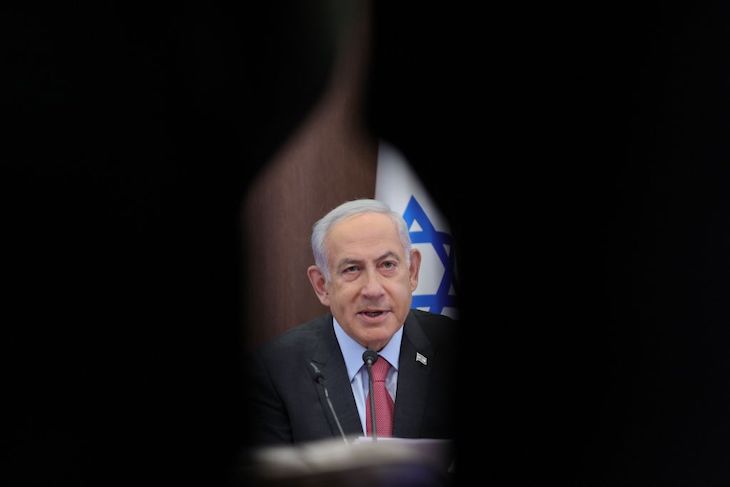Israeli politics is rarely quiet, but recent events have taken the drama and volubility to another level. The country has faced 11 weeks of protests against the make-up of Israel’s governing coalition and reforms to the country’s judicial system. Hundreds of thousands of people have taken to the streets. Roads have been blocked. The Knesset and politicians’ homes in Jerusalem have been targeted. Israeli police have used mounted officers, stun grenades and water cannon to disperse demonstrators.
With the protests showing no signs of abating, last night – ahead of his visit to London – the country’s prime minister Benjamin Netanyahu made a tone deaf television address. ‘We can’t let any disagreement, however fierce, endanger our joint future,’ Netanyahu told Israelis – before insisting he would press ahead with his legal shake-up through Israel’s unicameral Knesset next week.
The judicial reforms Netanyahu wishes to implement would, according to those who oppose them, dramatically undermine the ability of the Supreme Court and other bodies to exercise legal oversight over the country’s government. Unsurprisingly,

Get Britain's best politics newsletters
Register to get The Spectator's insight and opinion straight to your inbox. You can then read two free articles each week.
Already a subscriber? Log in







Comments
Join the debate for just $5 for 3 months
Be part of the conversation with other Spectator readers by getting your first three months for $5.
UNLOCK ACCESS Just $5 for 3 monthsAlready a subscriber? Log in